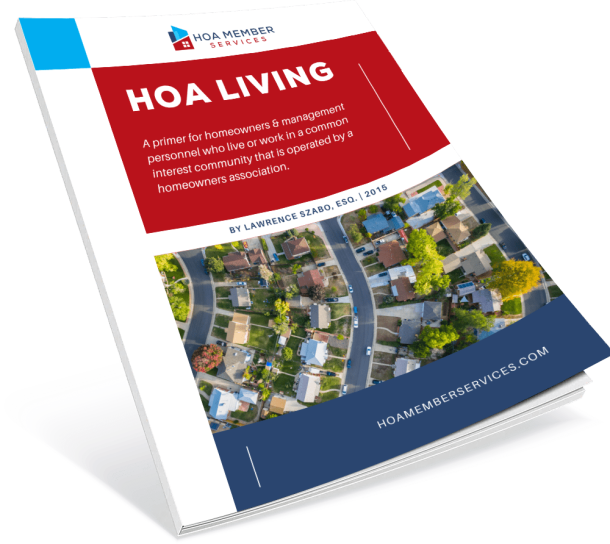HOAs Should Have a Written Policy on the Handling of Neighbor-to-Neighbor Disputes
- Board of Directors, Governing Documents
If you live in a common interest development, it is inevitable that there are going to be disputes between neighbors. Because such disputes typically do not involve issues concerning the association’s common area property, HOA boards frequently elect not to expend their time or utilize association resources to become involved in the dispute, even if the conduct being reported constitutes a violation of the association’s governing documents.
HOA board decisions to “not get involved” in neighbor-to-neighbor disputes frequently precipitate costly litigation between the neighboring parties and/or the association for failing to take action to enforce the association’s governing documents. The association’s risk of liability for its inaction will depend on how the association made the decision not to get involved.
Common Neighbor-to-Neighbor Disputes.
The circumstances that create neighbor-to-neighbor disputes vary from case to case, but some common causes of such disputes are:
- Noise issues that can be created from such things as playing loud music, walking on hard surface floors, dogs barking, or kids playing;
- Smell issues caused by such things as cooking, smoking cigarettes, cigars, and marijuana;
- Criminal activity;
- Conditions on property such as walls, trees, paint colors, and items placed on property.
Investigation of the Complaint.
When an HOA board or manager receives a complaint, it should be investigated to determine if the complaint has merit and whether there has been a violation of the association’s governing documents. The investigation does not have to be conducted by the directors themselves. The directors can assign the responsibility to the association’s property manager, maintenance personnel, or experts who report their findings to the board.
Action by the Board.
The results of an investigation of a complaint should be considered by the board of directors at a proper meeting, or hearing, at which the involved parties have an opportunity to be heard. The procedural requirements for such hearings, which are typically set forth in state statutes and/or an association’s governing documents, should be followed to the letter and the directors’ findings should be documented in minutes of the meeting. Following the meeting, a letter or notice setting forth the board’s findings should be sent to the involved parties.
If the board determines that there has been a violation, the board should impose an appropriate fine and/or suspension of privileges on the offending party in accordance with the association’s schedule of fines and policy concerning the imposition of fines and discipline. If the offending conduct warrants it, the board should seek an appropriate injunction through a court action designed to prevent continuation of the conduct.
Business Judgment Rule.
Subscription Required to Continue Reading
To view the full HOA Featured Article, you must have a Subscription with HOA Member Services
Become a Member
Personal Monthly
-
Access to over 600 Articles & Case Decisions
-
Access to hundreds of Resources
-
HOA Newsletter
-
Free Copy of HOA LIVING
-
25% OFF Download Forms
-
1 User
Personal
-
Access to over 600 Articles & Case Decisions
-
Access to hundreds of Resources
-
HOA Newsletter
-
Free Copy of HOA LIVING
-
25% OFF Download Forms
-
1 User
Pro
-
Access to over 600 Articles & Case Decisions
-
Access to hundreds of Resources
-
HOA Newsletter
-
Free Copy of HOA LIVING
-
Free Unlimited Access to Download Forms (save $1000s!)
-
Unlimited Personal Support from HOA Attorney
-
1 User
HOA Team
-
Access to over 600 Articles & Case Decisions
-
Access to hundreds of Resources
-
HOA Newsletter
-
Free Copy of HOA LIVING
-
Free Unlimited Access to Download Forms (save $1000s!)
-
Unlimited Personal Support from HOA Attorney
-
Up to 10 Users

